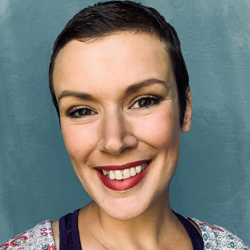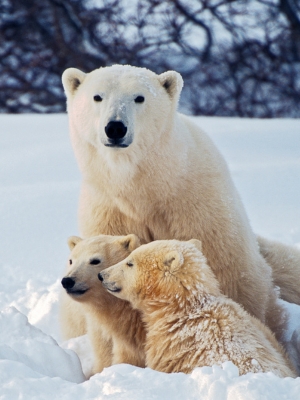“There is a tendency to believe that, once an animal is rescued and brought to a sanctuary, that they have then got their ‘happily ever after’ and that from that day forward, they live free from fear, harm, and distress. While it is the very foundation of our work here at Born Free USA to strive to make this true for all of our residents, emotional and physical scars do not go away overnight. Some are carried with them for a lifetime”.
I wrote these words almost a year ago to the day. We had just said a sad farewell to our beloved Chongo, a little rhesus macaque who had been exploited in the pet trade and who suffered long-term physical ailments. Following a heroic battle and despite the very best efforts of our team, Chongo passed away last winter at just ten years old; less than half the age he was expected to live. On the same day, we welcomed Charlie, a young Japanese macaque who, like Chongo, had been kept as a pet and then moved from one place to another before he finally landed with us. We committed to provide him for a home for life, as we do with all of the monkeys we take into our care.
Tragically, Charlie passed away suddenly a few weeks ago. He was just eight years old.
Little was I to know that the words I wrote when he arrived would ring so painfully true for this young monkey, who should have had his whole life ahead of him.
Charlie was, physically, one of the healthiest monkeys I had ever seen. He was strong, his fur was lustrous, and his face was just the right healthy color of pink. He was a beautiful monkey. He was also, emotionally and mentally, one of the least healthy monkeys I have ever met. He ricocheted between extreme aggression and a timidity that was so profound that he would not even let staff see him. He would spend his time hiding from us in his sleeping box. If someone walked past when he happened to be out and about in his enclosure, he would make a desperate dash for cover. It broke my heart to see.
He didn’t know how to be with other monkeys. We tried to introduce him to Niko, another young male who came to us earlier this year. While Niko made gentle vocalizations and made moves to groom Charlie, Charlie would throw himself around the enclosure at high speed, shaking the fencing aggressively and, quite literally, bouncing off the walls. We then tried to introduce him to Khy, but that didn’t work either.
Charlie went back to living alone while we went back to the drawing board and tried to come up with a plan. We were not going to give up on him, but we were running out of options to find him a friend. As it turned out, there was no more time. Charlie never found his friend, he never got the chance to bond and groom and snuggle up at night with another monkey, because he left us just a few days after his failed socialization attempt with Khy.
Charlie was stressed. And I don’t mean stressed in a “he had a few bad days” or “he had trouble settling in” way, I mean he was chronically and severely stressed, every day of his life. And it was this stress that killed him.
When the results of his necropsy came back, it was confirmed that chronic stress levels had so severely compromised his immune system that it caused an abnormal reaction in his blood which, in turn, resulted in internal hemorrhaging. It was the stress caused by being a baby taken away from his mother before he was weaned, the stress of being caged in someone’s home, the stress of being moved from place-to-place as no one could find a solution for this young, wild animal, who should never have been born into captivity, the stress of never being able to live on his own terms, with his own kind, that took his life.
At Charlie’s passing, our team was struck with the same grief that we experience at the loss of any animal under our care. But, in additional to the sadness, I could not help but feel angry. I am angry because this keeps happening. Breeders continue to breed and sell baby monkeys to people who want a novelty pet. Those monkeys grow older, become aggressive and unmanageable. They develop physical and mental health issues. They self-harm or they harm their owners. They become too much of a risk. The unlucky ones are killed outright. A small number are sent to sanctuaries whose staff then do their best to undo the harm done to these innocent animals. But some harms cannot be undone. And here we come full-circle. Here I find myself repeating the words I wrote last year:
“Until this cruel trade ends, there will be countless more Charlies and countless more Chongos; innocent, frightened, and often sick monkeys who have been denied the opportunity to live life in freedom”.
At Born Free USA, we campaign for an end to the exploitation of wild animals as pets, as well as caring for the victims of such exploitation. In this, we need your support. Please help us today to bring an end to the suffering of monkeys like Chongo and Charlie, as well as that of the countless others who we have never met, and never will meet, who are still caught up in this cruel trade.
To help us fight the suffering of monkeys like Charlie, please click here.

 Dear Reader,
Dear Reader,